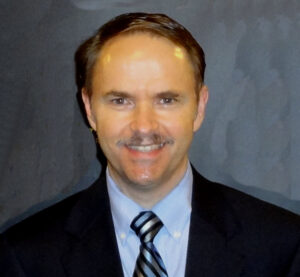Discuss on Tinnitus Talk Forum
 Tinnitus Talk spoke with Bryan Pollard, the president of Hyperacusis Research Limited, based in Boston. Bryan himself suffers from hyperacusis, which he believes is due to sound exposure from a loud woodchipper several years ago.
Tinnitus Talk spoke with Bryan Pollard, the president of Hyperacusis Research Limited, based in Boston. Bryan himself suffers from hyperacusis, which he believes is due to sound exposure from a loud woodchipper several years ago.
In this episode, Bryan talks about his personal experience with hyperacusis, and how this drove him to start Hyperacusis Research to raise funds for scientific research.
We spoke about the concept of pain hyperacusis and how it only recently became recognized due to the scientific breakthrough proving that the cochlea has pain receptors. Bryan also gives advice to hyperacusis patients regarding treatment options. And of course, we spoke about the most exciting new research developments.
Do you like Tinnitus Talk Podcast and would you like to support our work?
Become a Patreon for as little as $2/month!
Would you like to read a transcript of the interview?
We have prepared one for you. Click here for the transcript (PDF).
Skip to: 00:00 Bryan’s background and personal hyperacusis story.
Skip to: 05:59 Becoming a hyperacusis advocate.
Skip to: 12:02 Various definitions of hyperacusis.
Skip to: 19:12 How does pain hyperacusis work?
Forever researchers had assumed that the cochlea itself had no pain receptive fibers. […] They referred to that as if it were a fact.
Skip to: 23:57 What is reactive tinnitus?
Skip to: 26:01 Treatment options for hyperacusis: sound therapy.
Skip to: 33:27 Sound exposure, setbacks, and the role of stress.
Setback prevention is a priority that many sufferers have. […] Once you know where your limits are for setbacks, it’s important to prevent those in order to maintain forward progress.
Skip to: 42:18 Treatment options for hyperacusis: surgery.
Skip to: 44:48 What can patients do to get help or help themselves?
Everybody that suffers from something that is poorly understood, one of the things that every single patient can take control of is to look at their nutritional framework and optimize it.
Skip to: 51:52 Where can patients get reliable information?
Skip to: 55:45 Hyperacusis hybrid device clinical trials.
The hyperacusis hybrid device is an incredible way to work around the problem of setbacks. […] This way you have the benefit of an earplug all the time you need it, but you don’t have to get all sounds muffled.
Skip to: 33:54 Cognitive Behavioural Therapy (CBT) and Funding.
Skip to: 01:00:31 Other exciting new research developments.
Skip to: 01:08:07 How can we push research forward?
Well done Bryan, Hazel & Tinnitus Talk – this podcast was so informative!
I suffer with pain hyperacusis because of failed ear surgery! The middle ear damage occurred in Australia in 2012.
My biggest problem in the past seven years has been that pain hyperacusis does apparently not exist! Only noise hyperacusis does so therefore you have a psychological illness – No! The research world is just catching up to my symptoms! I hope this podcast of excellent information becomes a “tool” for ENTs and audiologists to listen to all over the world.
I, after 7 years believe there is NO cure as yet, it is all about teaching yourself how to live with noise and when to allow yourself to be exposed to certain loud noises – If I fail here, I find the setbacks can last months, e.g. I tried a family Christmas last year and my recovery took over 4 months.
I have found the research with the noise receptors behind the eardrum is what caused my hyperacusis – the cochlear feels pain! Yes! It certainly does.
And all the messages to my brain are misfiring when there’s loud noise and now I suffer with distortion of sound. I Live a quiet life, try not to expose myself to loud Noise and my ears thank me.
No more experiments of ill informed ear audiologists and ENT surgeons – I found when I stopped chasing for treatments, and realized that an elusive miracle cure was unobtainable in 2019, I found peace and my stress levels dropped.
Hi Susan, we’re so happy to hear you found this episode informative! Indeed, people can send it to their ENTs/audiologists when they struggle to feel heard.
Thank you also for sharing your story. Wishing you all the best on behalf of the Tinnitus Talk team 🙂
Excellent podcast. Very easy to listen to and it made me hopeful that work is being done. I have pulsatile tinnitus and hyperacusis (non painful). This was helpful in reminding me what priorities are important to manage the impact of these conditions. I’m sharing with family as well for their education and understanding. Olga
I am profoundly deaf and have tinnitus. It isn’t in my ear but it is all around my body. I feel as if there are drums booming or a machine is running near me.
I’m writing out of desperation. 4 months ago, I received a very loud blast from headphones in a race car. It left my ears ringing so loud and severe hyperacusis. Two MRIs seem to have made it worse. I’ve been bed ridden for 4 months. I’ve lost everything. I can’t function at all. All noise is extreme. The ringing is extreme. The pressure in my head is massive and severe head pain 24/7. Nonstop. And I made a huge mistake in taking two MRIs which seem to have made it way worse. I’m destroyed.
John Ness, please don’t give up. There’s some treatments coming along. We are waiting.